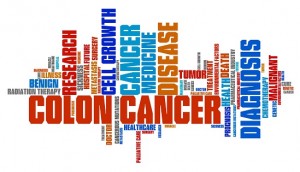
Colon cancer claims the lives of 50,000 Americans annually. In order to reduce these numbers and extend the lifespan of sufferers, it’s important to understand the risk factors and causes of colon cancer and develop better treatment options.
This past year saw many advancements in the area of colon cancer in regards to treatment, the role of gut bacteria, and even risk factors. Here are Bel Marra Health’s top news stories discussing colon and colorectal cancer from the past year. We hope they will help you develop a better understanding of these forms of cancer as well.
Colorectal Cancer Screening: Changes in colorectal cancer screening guidelines suggested for aging seniors
The guidelines for colorectal cancer screening have changed for seniors.
The researchers followed 144,768 men and women, between the ages of 55 and 74, over the course of 13 years. The goal was to determine colon cancer risk in those with a family history of colon cancer by at least a first degree relative.
Polyps and Colon Cancer: Colon polyps causes and increased colon cancer risk
The causes, risk factors, treatment and prevention of colon polyps.
Colon polyps have been found to increase the risk of colon cancer. A colon polyp is a small clump of cells that form in the lining of the colon. The majority of the time colon polyps are harmless, but sometimes they can signal a more serious condition, such as colon cancer.
Colon polyps can develop at any age but are most commonly found in those that are 50 years old or older. Even if colon polyps do not cause any symptoms, it’s still important to monitor them because during their early stage they can be safely removed.
There are three types of colon polyps: adenomatous, serrated and inflammatory. Adenomatous colon polyps are the most common form, occurring in two-thirds of cases. The risk of them becoming cancerous is slim but still possible.
Colon Cancer and Gut Bacteria: Prunes reduce colon cancer risk by benefiting healthy gut bacteria
Dried plums help promote healthy gut bacteria, which can reduce colon cancer risk.
Researchers at Texas A&M University and the University of North Carolina examined the tissues, as well as the contents, of different segments of animal colons. The results indicated that a diet of dried plums – also known as prunes – increased two major gut bacteria, beneficial microbiota, in the distal colon. This was without affecting the proximal colon. The distal is the left side or last part of the colon that connects to the rectum, while the proximal is the right side of the colon that connects to the small intestine.
Colon Cancer Prevention: Daily aspirin may reduce colon cancer risk
New research suggests that taking an aspirin daily can help prevent colon cancer.
The study comes from researchers at Newcastle University and the University of Leeds. Their findings suggest a daily baby aspirin (one or two pills) for a minimum of five years may reduce the risk of colon cancer. Additionally, their findings unveiled that taking a daily aspirin counteracted cancer risk in individuals who are overweight.
For the study, men and women took low dose aspirin (75 to 150 mg) for five years. Their data was collected from Danish cancer databases, and researchers examined the health history of more than 10,000 colon-cancer patients. The colon-cancer patients were then compared with 100,000 cancer-free individuals.
Hereditary Colorectal Cancer: Detection of genetic mutations now improved
The detection of a genetic mutation can help better diagnose and treat colorectal cancer.
Lynch syndrome is a hereditary colorectal cancer susceptibility syndrome. Blood relatives of those with Lynch syndrome have a 50 percent chance of developing cancer. PMS2s role in Lynch syndrome has been greatly underestimated due to technological limitations.
Researchers have uncovered a new means of more accurately detecting PMS2. Researchers developed a three-part strategy of which co-investigator Victor Wei Zhang said, “The results from three methods serve as cross validation for enhanced accuracy and reduced turn-around time.”
Keeping your colon healthy is just one step towards preventing colon cancer, along with keeping an eye on the other risk factors that have come to light over the past year. With more studies focusing on colon cancer and colorectal cancer, we can continue to move in the right direction and reduce the number of diagnosed cases annually, which will reduce the amount of lives taken by these two dangerous forms of cancer.